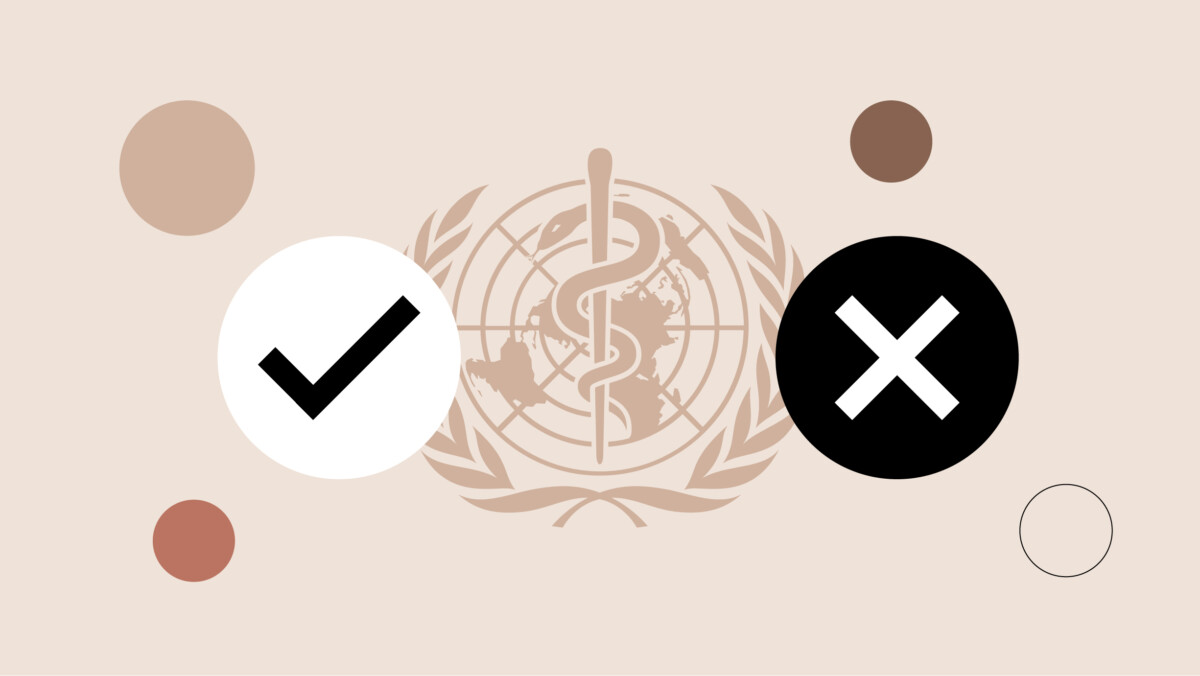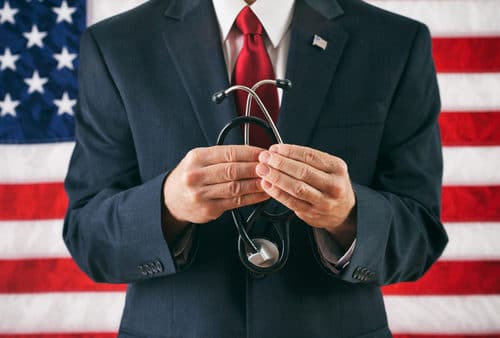
After World War II, the devastation of global conflict highlighted the need for an international, cooperative public health body. At the 1945 UN Conference, China, Brazil, and Norway proposed such a global health organization, leading to the International Health Conference, where 61 nations signed the WHO Constitution on July 22, 1946.
The WHO is dedicated to the challenging yet vital task of improving global health. Its functions include coordinating outbreak responses, establishing international medical norms and standards, fortifying health systems, and assisting countries in preparing for future pandemics. However, the WHO has come under fire recently, with critics claiming the organization failed in its response to COVID-19. Physicians on Sermo are split on whether the WHO is still capable of leading global health crises. In a recent Sermo poll, 51% said the WHO is “fit for purpose,” 31% said “no,” and 18% were unsure.
Sermo members offer sharply contrasting views:
“The WHO has become a farce. It appears to be for sale to the highest bidder or the most powerful political entity. The way it handled the COVID problem is a disgrace to medicine. We need to entirely reform the WHO.” – Family Medicine physician
“The WHO remains essential to global health but needs urgent reform. It plays a key role in coordination, disease control, and setting standards, yet struggles with political influence, limited authority, and slow responses.” – Resident, General Practice
“I don’t think that there is anything that realistically could be done to improve the WHO, though if there truly could be greater transparency and accountability, that would make some small difference. However, Dr. Tedros is not a medical doctor, and the WHO is grasping toward the power to make all medical decisions for all nations, and I do not think the WHO is actually reformable.” – Psychiatrist
“Let’s not throw the baby out with the bathwater. The WHO is an important organization. Could use more funding and resources and more independence from politics to rebuild trust.” – General Practice physician
This article explores the deep divisions among physicians regarding the WHO’s effectiveness and future, offering insights into calls for reform versus replacement, the impact of political influence and funding, and what clinicians can do to shape more responsive global health policies.
Calls for reform vs replacement
The U.S. shocked the world by announcing its process to withdraw from the WHO in January 2025. Trump cited lack of accountability, wasted funding, slow response rate, and political interference as primary reasons for departure. This is on the heels of Trump’s gutting of the USAID program and broader cuts to UN funding—decisions experts warn could reduce WHO capacity and cause up to 14 million preventable deaths, with 75% of surveyed physicians predicting a moderate to profound negative impact.
When asked what should be done with the WHO, 47% of physicians demand urgent reform, versus 11% calling for outright replacement and 31% who say to continue as is. The major reform priorities are greater transparency, more independence from national politics, and faster operational response.
The WHO’s 2024–2025 midterm results and budget materials emphasize accountability gains, but also the continuing need for more predictable, flexible financing to move quickly when health needs shift. Translation: fewer earmarks, more core funding.
Bringing AI into the picture, many physicians want the WHO to lead on safe, equitable AI adoption by setting standards for bias monitoring, clinical validation, and data governance. Sermo’s Guide to AI in Healthcare shows where clinicians already see value (such as triage, documentation, or workflow automation) and where guardrails are needed to protect patient safety and privacy as adoption accelerates.
Some clinicians, however, argue replacement is the only cure. A 2025 scoping review cataloged common critiques of WHO’s pandemic performance: delays, communication failures, governance limitations, and transparency gaps, suggesting that structural issues remain. Clinicians tracking this “Trump–World Health Organization” storyline should watch budget outcomes, bridge funding from other Member States, and whether financing reforms can save the organization.
The problem of politics, power, and funding
In our Sermo poll, 47% of surveyed doctors named political influence as the WHO’s main limitation; 21% cited limited authority to enforce guidance; 15% cited slow responses during global health crises; and 11% pointed to insufficient funding.
While 62% of surveyed physicians agree that countries such as the USA can and should help provide aid and development support for global stability, when politics and funding become intertwined, priorities can become radicalized. Trump’s actions to withdraw from the WHO and reduce UN agency funding could destabilize global health programs, as the U.S. is a major donor. Public-health experts at Johns Hopkins similarly pointed to consequences for standards-setting, supply chains, and program delivery if U.S. support recedes.
In the clinic, politics, power, and funding aren’t abstract—it’s the difference between a stable drug supply vs. stockouts, consistent TB case finding vs. backsliding, and timely outbreak alerts vs. media misinformation cycles. Sermo’s analysis on costs underscores how these macro factors cascade into daily practice: 63% of physicians said they consider the cost of care “all” or “most” of the time (23% “always,” 40% “most of the time”), highlighting how resource pressure shapes treatment decisions in real clinics.
When patients face higher costs, they delay care, skip refills, and bargain with their treatment plan. That’s not “shared decision-making”—that’s survival. Physicians grapple with this reality every day.
To many physicians, if global health were a call night, the WHO is the cross-coverage resident—indispensable when things go sideways, but frequently paged, underfunded, restricted by money politics, and occasionally late to the bedside.
Confidence in crisis leadership remains low
Only 11% of physicians in the Sermo poll said they’re “very confident” in WHO’s ability to lead the next global health crisis; with 30% not confident and 14% not confident at all. Academic reviews echo the sentiment: the WHO’s COVID-19 response drew criticism across six themes—response delays, communication failures, vaccine equity, global coordination, governance limits, and transparency.
Critics also look to earlier outbreaks and sluggish WHO responses. During the 2022–2024 Mpox surge, physicians on Sermo reported low direct case exposure (only 19% saw cases) but high concern about spread, with 51% confident Mpox could reach pandemic status if unchecked, capturing the frontline tension between vigilance and uncertainty. The WHO and partners have improved in several operational areas since COVID-19, but rapid guidance shifts and changing case definitions still strain trust at the bedside.
Perhaps best summed up on Sermo, where a cardiologist writes, “The WHO’s recommendations during the COVID pandemic were clearly not appropriate. Although it was difficult, they failed to consider the situations and needs of each country and issued the same directive for all. This isn’t the only example, but it is one of the most relevant. Among other things, I don’t see it as a modern organization. Medicine advances, communications advance, and the WHO remains too classical and conservative.”
What would make the WHO fit for purpose?
Based on Sermo’s poll data of over 1,000 physicians and a synthesis of physician insights in our community, there are three major remedies for the WHO:
1) Independence from national politics (30%)
Many physicians worry that the WHO has become a political tool, hijacked by politicians to spread their own agenda. Most agree that member states should improve operations and impact by increasing assessed contributions and reducing earmarking—so that the WHO can allocate by need, not by donor preference. The WHO’s own reports emphasize the same: predictable, resilient, bias-free financing is the lever for agility.
As one cardiologist explains on Sermo, “IMO, the WHO is run politically, not for medical purposes. As a physician, I don’t follow recommendations or guidelines from the WHO, but I do follow those from the scientific societies of each medical specialty (for example, in Cardiology, the AHA in the USA, the SAC or FAC in Argentina, the SEC in Spain, etc.)…”
2) Greater transparency (20%)
Physicians want clearer rationales for time-sensitive guidance changes and more visible evidence-based actions. The 2025 scoping review shows why: transparency gaps undermine trust even when recommendations are ultimately sound.
A Sermo member and geriatrics physician explains, “too much corruption, politics, and [there] is less and less trust in them as an organization.”
This attitude is echoed by a psychiatrist on Sermo, “I don’t think that there is anything that realistically could be done to improve the WHO though if there truly could be greater transparency and accountability, that would make some small difference. However, Dr. Tedros is not a medical doctor, and the WHO is grasping toward the power to make all medical decisions for all nations, and I do not think the WHO is actually reformable.”
3) More front-line physician involvement (17%)
Beyond political independence and greater transparency, physicians advocate for a more direct role in shaping global health strategies. An Internal Medicine physician explains,”“More real involvement is needed, with members who are in touch with real health problems. Greater independence from political systems and more objectivity when preparing reports. It must regain credibility and solvency.”
Expanding healthcare access takes an integrated policy, tech, and workforce. Physicians advocate for more comprehensive, consultative WHO panels spanning community clinicians, hospitalists, emergency physicians, surgeons, and public health pharmacists (those who know which shelf the vaccine actually sits on). Insights from the front line are where policy meets reality.
The future of WHO: abandon, reform, or reimagine?
So, are the days of the WHO numbered? A minority argues for replacement, hoping a new entity could be less political and more agile. Others insist reform is both necessary and realistic—especially if Member States shield science from political winds and fund the WHO like a global public good.
47% of physicians believe the WHO needs urgent reform, while 31% agree the WHO is functioning well and should continue as is, and 11% state the WHO should be replaced by a new organization.
Several facts shape this decision space:
- WHO’s governance and mandate sit within UN structures; replacing it would take years while pathogens continue to spread rapidly.
- Major Member-State policy shifts—like the U.S. 2025 withdrawal actions—have immediate, drastic operational implications for global programs.
- A new pandemic agreement was adopted in 2025; watchdogs called it “landmark, but flawed,” urging stronger human-rights and accountability provisions to make it workable for physicians and communities.
For physicians, the implication is clear: your voice matters. As ambassadors in your communities and as experts who see the consequences of global health policy at 2 a.m. in the ED, clinicians are uniquely positioned to shape smarter reforms. On Sermo, physicians routinely translate policy into practice— discussing expanding access, highlighting barriers, and proposing practical fixes.
Key takeaway
Most physicians in our poll believe the WHO is still essential but requires urgent reform—especially to reduce political influence, increase transparency, and involve front-line clinicians. While a smaller group calls for replacement, reform is the majority pathway to rebuild trust and strengthen global preparedness.
Physicians must lead the charge to help save the WHO. By amplifying their voices on Sermo, clinicians advocate for a WHO that is more agile, accountable, and truly reflective of global health needs. This expert community is vital for forging a more resilient and equitable future for global public health.
Frequently asked questions
The WHO coordinates international health directives, sets standards, monitors threats, and supports countries in crisis response.
Physicians cite political influence, slow responses, and financing constraints that limit effective outcomes. Independent reviews of pandemic performance and the WHO’s own reporting echo those concerns.
It’s possible in theory, but replacement would be slow and risky during active threats. Many experts and physicians view targeted reforms and protected funding as the more realistic, near-term fix.















